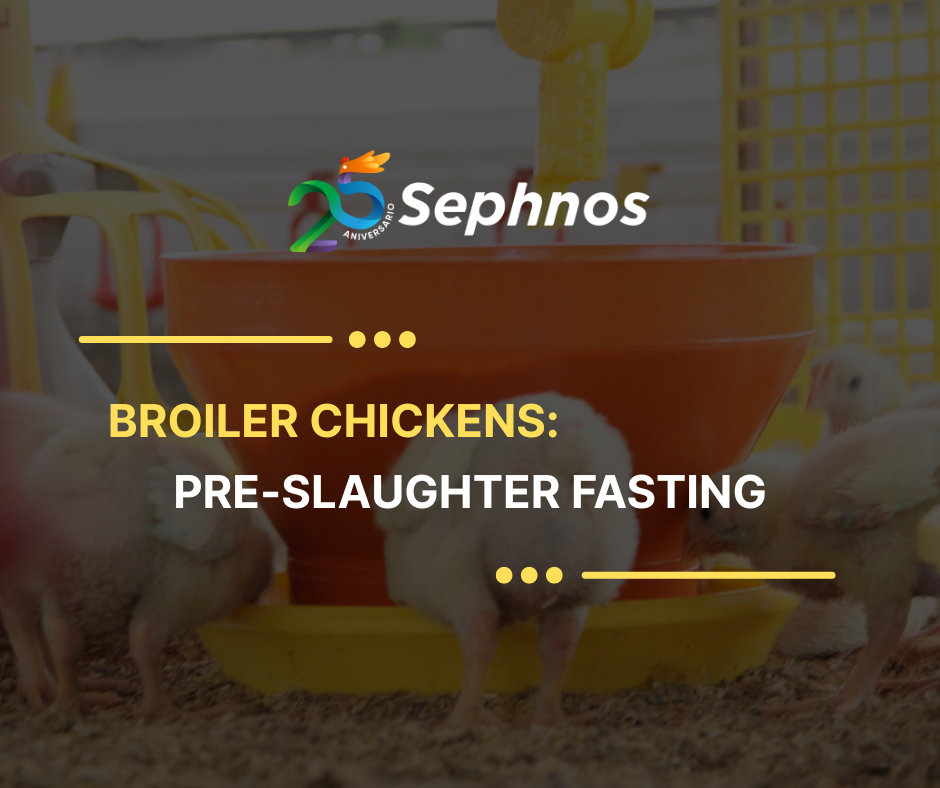Broiler Chickens: Pre-Slaughter Fasting
The restriction of food and water for broiler chickens before slaughter is a common practice and, in some countries, is regulated by legislation.
The fasting period varies depending on geographic location, type of bird, distance to the slaughterhouse, type of farm, target market, country, and other factors.
Generally, it is recommended that this restriction lasts 8 to 12 hours prior to transport.
Reasons for withholding feed include:
Improved animal welfare during transport
Reduced mortality
Lower risk of carcass contamination during evisceration
Less feed waste
Potential reduction in carcass quality issues, such as pale, soft, and exudative meat
However, this practice can also lead to physiological and behavioral stress responses and an increased risk of carcass contamination during evisceration.
It is important to note that fasting time is often confused with rest time at the slaughterhouse. In some countries, health regulations require a minimum rest period for the birds.
Commercial broilers are subjected to total fasting time (fasting on the farm + transport time + time at the slaughterhouse).
Poor management during this process—including fasting, loading, transport, and slaughterhouse waiting—can increase weight loss, negatively affect carcass quality, and reduce shelf life.
The last 12 hours of a broiler’s life are the most stressful, so any measures to reduce stress during this period can improve weight retention, carcass quality, and shelf life.
Weight loss is inevitable, but results can be improved if each stage of the process is optimized. For example:
Transport cages with more ventilation reduce heat stress and improve welfare
Poorly designed cages can cause injuries to wings, legs, head, or other external parts due to improper flooring, walls, or roofs
These final 12 hours are critical, affecting final performance and economic returns for producers and distributors. An interdisciplinary approach is needed to evaluate measures that can reduce losses.
It is also important to consider that new regulations will become increasingly strict regarding food chain quality, animal welfare, human welfare, and environmental sustainability. In this last stage, many strategies will be implemented to minimize the detrimental effects that affect all aspects of broiler production.
For more information, please contact Sephnos. We offer valuable information and products that may be of interest to you.

